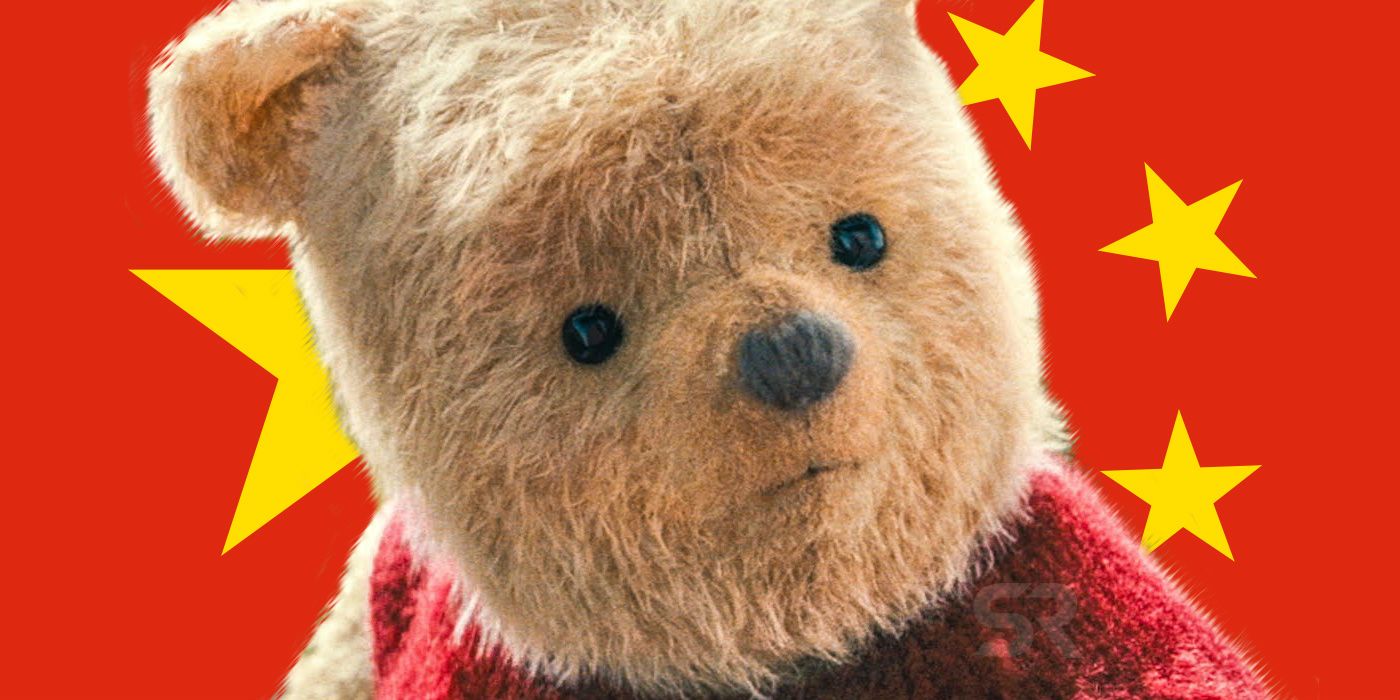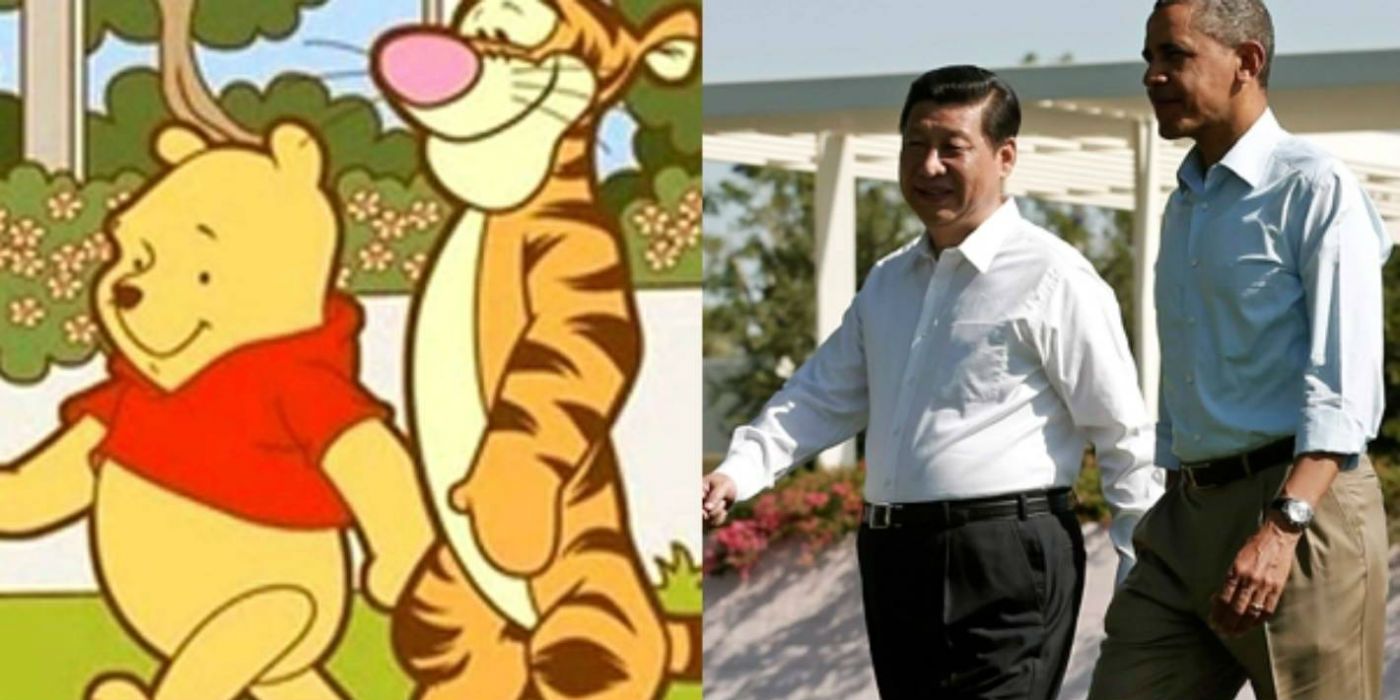Last Updated: December 7, 2019
Here's why Winnie the Pooh is banned in China. The now-famous bear was created by author A.A. Milne almost 100 years ago. The honey-loving bear debuted in 1926's Winnie-the-Pooh collection of stories and soon was featured in more literary works by Milne. The popularity of Pooh eventually began to span the entire globe, as these books were translated into multiple languages for kids around the world to enjoy.
Pooh became even more widely known and accessible over the last 50 years under the control of Disney. The studio produced several animated movies, shorts, and TV shows starring Pooh and his friends from the Hundred Acre Wood. Most recently, Disney used the characters as part of the live-action Christopher Robin movie from 2018. Christopher Robin received positive reviews but made less than $200 million worldwide. This release did not include a Chinese rollout though, and that's because the country censored all Winnie the Pooh content as the result of memes (really).
It all started in 2013 when China's President Xi Jinping began to be compared to Winnie the Pooh. While visiting the United States, he was photographed walking with Barack Obama. Some began to point to the similarities with that photo and one of Pooh and Tigger walking side-by-side (as seen below). The comparisons continued for the next several years, resulting in China's censors taking action in 2018. They've since scrubbed Weibo, a popular social media site in China, of any Winnie the Pooh material. This is believed to be one of the big reasons why Christopher Robin was denied a release in the Middle Kingdom.
While it may seem odd to compare the president of China to a cartoon bear, it's important to understand that the arguable physical similarities between the two aren't really the point. Xi Jingping was (at least by Chinese governmental standards) fairly put in power, but has since taken steps to ensure that he'll essentially be in charge of the country for the rest of his life. Thus, those who oppose his seizure of control are intent on making his life worse in any way they can, even if it's something as small as an unflattering comparison to Winnie the Pooh. As silly as it may sound to ban Winnie the Pooh in China, the iconic character has grown beyond his apolitical roots. He has instead become a symbol of resistance against Xi Jinping's regime. As Jingping is not pleased with these comparisons, those who criticize his rule have been happy to continue to use the bear's image whenever possible.
At this time, there is no end in sight for the Winnie the Pooh ban to be lifted in China either. Jinping was re-elected as President of China in 2018 and abolished the 6-year term limit in the process. In other words, he's not going anywhere anytime soon. Considering how prominent of a symbol against him Winnie the Pooh has become, it would be surprising to see the ban lifted with him still in charge. It may very well stay in place until someone else leads the Middle Kingdom, but that may be quite some time. Until that or a sudden change happens though, Winnie the Pooh will remain exiled from China, all because of some memes.
Winnie the Pooh's banned status in China assuredly vexes Disney though, as the Chinese market has become increasingly more important to Hollywood's bottom line. In fact, some films have gotten sequels almost entirely based on their performance in the country. It's doubtful that Disney has any plans to retire Winnie the Pooh from films, and one wonders if his continued presence will eventually cause a rift between Hollywood's biggest player and the Chinese government.


